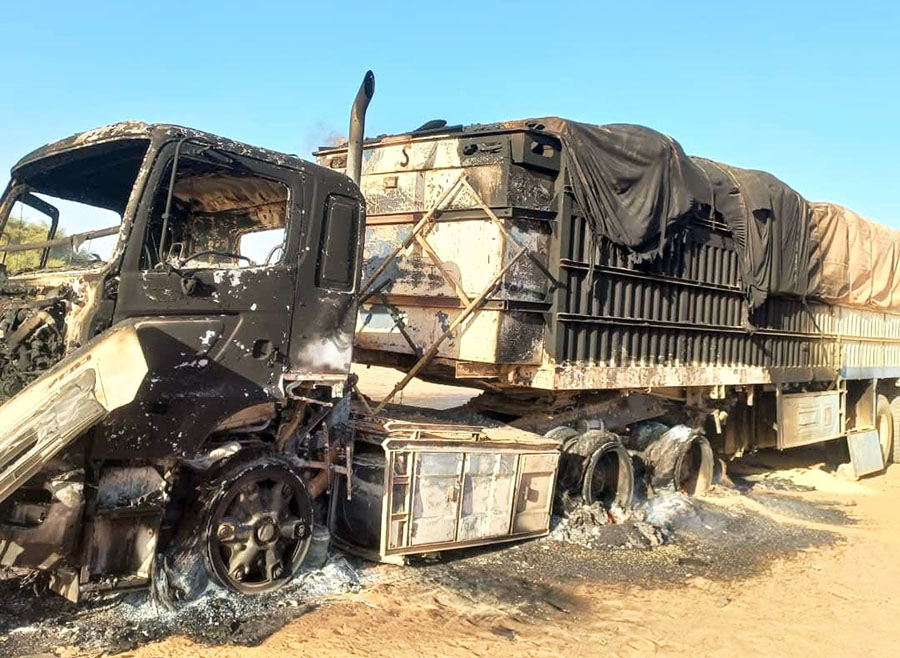
Targeting an Aid Convoy: Accusations Traded, and Citizens Are the Victims
Moatinoon
Amid the exchange of fire on various battlefronts, the two warring parties are constantly exchanging accusations regarding attacks on, or the prevention of, international humanitarian aid convoys from reaching those affected by the war. The primary victims of the war and its repercussions are the citizens in their areas, which have become battlefields between the warring parties.
The most recent incident that sparked widespread reactions among international organizations occurred in the Al-Kuma area of North Darfur State, where a humanitarian aid convoy of 15 trucks was targeted. The convoy was en route to El Fasher, the state capital, which has been under siege for more than a year. Throughout the siege, the residents of El Fasher have suffered from a lack of food and health services, leading to a tragic humanitarian situation.
Mutual Accusations
The Governor of Darfur, Arko Minni Minawi, condemned the attack on the World Food Programme (WFP) convoy from his residence in Port Sudan and on his Facebook page. He stated that the Rapid Support Forces (RSF) targeted the convoy, which had departed from Port Sudan, in the Al-Kuma area after its crew refused to change course or unload humanitarian supplies outside El Fasher.
In response, the RSF accused the armys air force of targeting the convoy, killing four people and wounding two others. In a statement, the RSF indicated that the attack constitutes a flagrant violation of international humanitarian law and called on the international community to hold the perpetrators accountable.
In a joint report, the WFP and UNICEF revealed details of the attack on a humanitarian aid convoy in the Al-Kuma area of North Darfur, Sudan, which killed five people and wounded others.
The two organizations said in their report on Tuesday that the convoy "consisted of 15 trucks and was attempting to reach children and families in famine-affected El Fasher with life-saving food and nutrition supplies." They emphasized that "the convoys route was known and agreed upon in advance with the parties, as is standard practice for all humanitarian convoys."
The agencies added: "Under international humanitarian law, aid convoys must be protected, and parties have an obligation to allow and facilitate rapid and unimpeded passage of humanitarian relief to civilians in need."
The statement continued: "The convoy traveled over 1,800 kilometers from Port Sudan, and we were scheduled to negotiate access to complete the journey to El Fasher when it was attacked." They expressed their "deep regret that the supplies did not reach the most vulnerable children and families."
They emphasized that "the lives of millions in Sudan, including in locations such as El Fasher in Darfur, depend on humanitarian access."

